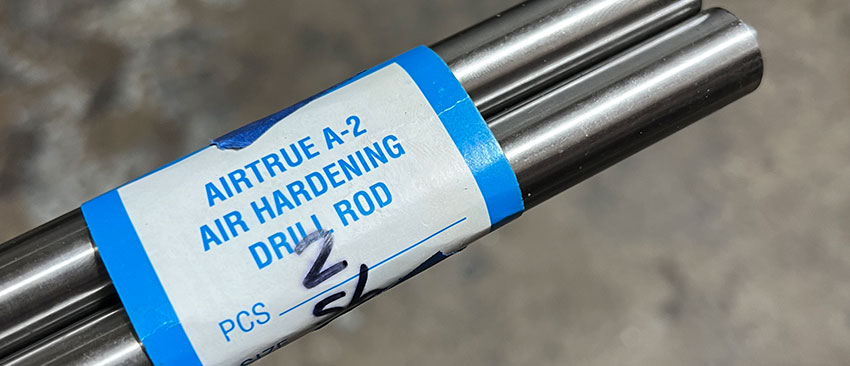Alloy Metals in Phoenix, AZ
Alloy steel is a useful metal used in several operations and industrial applications. Thus, at AZ Metals, we house a wide range of alloyand tool steels available in different forms, including round bars, tubes, pipes, sheets, plates, etc.
For quality alloy metals in Phoenix, AZ, visit only AZ Metals.
What is Alloy Steel?
Alloy steel has multiple alloying elements added to it to increase its strength, hardness, and other properties through heat treating rendering it suitable for distinct operations.
The properties of alloy and tool steel require precision and skills to create the right composition, so it is suitable for the purpose.
Thus, at AZ Metals, we have created a strong base of reliable suppliers, allowing us to offer you the best quality alloy and tool steel.
We pride ourselves on offering the most comprehensive range of line items. For any alloy and tool steel metal requirements in Phoenix, AZ, contact AZ Metals.
What We Offer?
We offer multiple grades of alloy steels, which are as follows:
4130 – This chromium molybdenum alloy steel has medium carbon, good strength, weldability, abrasion, and impact resistance. In the annealed condition, it is easy to machine and weldable. Typically available in round bar, flat bar, sheet/plate, and seamless thinner wall round tube. Its high strength-to-weight ratio is desirable for applications where weight and strength are factors.
4140 – This is an oil-hardening chromium molybdenum alloy steel with medium carbon that has high strength, high fatigue strength, and toughness. This material also has high impact and abrasion resistance. It is ductile in the annealed condition but is tougher than carbon steel. It is a through-hardening grade that offers good hardness and strength. Typically available in round bar, TGP rounds, flat bar, plate, and heavy wall large OD seamless tube.
4340 – This is an oil-hardening nickel chromium molybdenum alloy steel with medium carbon, toughness, and shock resistance. In heat-treated conditions, it has excellent fatigue strength while maintaining good ductility. This material is available in round bars, flats, and plates.
We also offer tool steel grades:
A2—This is an air-hardening tool steel with good strength and wear resistance. It is not quite to the level of D2 but better than O1.
O1 – This is an oil-hardening tool steel that heat treats with a high level of stability with minimal distortion. It is a general-purpose tool steel that is readily available.
D2—This is a high-carbon air-hardening tool steel that is resistant to wear. Many shear blades are made from this material.
Apart from the above grades, many other alloy and tool steel metal grades are easily available at AZ Metals. Enquire now to find your preferred grade.
Other Metals
Titanium is another alloy metal that we offer. Titanium is used to make steel alloys as well. However, it offers a greater strength-to-weight ratio compared to steel. Despite steel having a better tensile strength, titanium is used in aircraft, aerospace vehicles, and other equipment and items used in harsh environments.
We offer titanium sheets, plates, bars, tubes, pipes, etc.
Contact Us!
AZ Metals, Mesa, has been in business since 2011. We have built a reputation over the years with our commitment to quality, consistency, and affordable prices, which gives us a competitive edge.
So, if you prefer quality over cheap metals, visit us at AZ Metals for superior quality alloy metals in Phoenix, AZ.
Frequently Asked Questions
Que: What should I choose between steel and titanium?
Ans: Steel is an inexpensive metal compared to titanium. However, both metals have distinctive properties. You must choose steel if you are price-conscious. However, if quality is of the utmost importance to the project, then choose titanium. It is expensive but offers the required strength and durability.
Que: What grade of alloy steel is most common?
Ans: The most common alloy steel grade is 4140. It has chromium and molybdenum, which offers it the required tensile strength and wear resistance. At AZ Metals, we offer 4140. Visit us today!
Que: How does alloy steel differ from tool steel?
Ans: Both alloy steel and tool steel are types of steel with only difference being the amount of carbon in them. Tool steel has a higher percentage of carbon which lends it the strength and hardness. Tool steel is generally brittle and hard.





